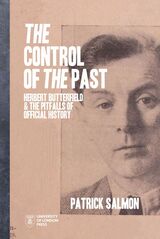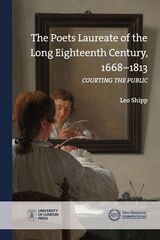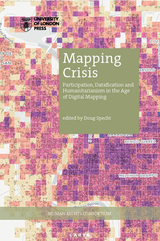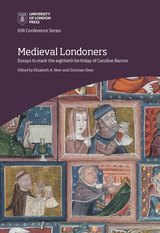223 scholarly books by University of London Press and 12
have author last names that start with S
223 scholarly books by University of London Press and 12
223 scholarly books by University of London Press
12 have author last names that start with S have author last names that start with S
12 have author last names that start with S have author last names that start with S

The Optics of Ibn al-Haytham Books IV–V
On Reflection and Images Seen by Reflection
Abdelhamid I. Sabra
University of London Press, 2023
Books four and five of a landmark seven-volume work of medieval scientific study of optics.
Ibn al-Haytham was perhaps the greatest mathematician and physicist of the medieval Arabic/Islamic world. The most famous book in which he applied his scientific method is his Optics, through which he dealt with both the mathematics of rays of light and the physical aspects of the eye in seven comprehensive books. His rethinking of the entire science of optics set the scene for the whole of the subsequent development of the subject, influencing figures such as William of Ockham, Kepler, Descartes, and Christaan Huygens. The immense work of editing, translating into English, and commenting on this work was undertaken by Abdelhamid I. Sabra. This English translation of Books IV–V was completed by Sabra just before his death in 2013 with an introduction and critical analysis. It has been extensively revised by Jan Hogendijk.
Ibn al-Haytham was perhaps the greatest mathematician and physicist of the medieval Arabic/Islamic world. The most famous book in which he applied his scientific method is his Optics, through which he dealt with both the mathematics of rays of light and the physical aspects of the eye in seven comprehensive books. His rethinking of the entire science of optics set the scene for the whole of the subsequent development of the subject, influencing figures such as William of Ockham, Kepler, Descartes, and Christaan Huygens. The immense work of editing, translating into English, and commenting on this work was undertaken by Abdelhamid I. Sabra. This English translation of Books IV–V was completed by Sabra just before his death in 2013 with an introduction and critical analysis. It has been extensively revised by Jan Hogendijk.
[more]

The Control of the Past
Herbert Butterfield and the Pitfalls of Official History
Patrick Salmon
University of London Press, 2021
A reflection on nation-building, identity, and the stories governments tell us about ourselves.
In 1949, English historian Herbert Butterfield published “Official History: Its Pitfalls and Its Criteria,” a now-famous diatribe against the practice of publishing official history. Butterfield was one of the earliest and strongest critics of what he saw as the British government’s attempts to control the past through the writing of history. But why was Butterfield so hostile to state-sanctioned history, and why do his views still matter today?
This important new book details how successive governments have applied a selective approach to the past in order to tell or retell Britain’s national history. Providing a unique overview of the main trends of official history in Britain since World War II, the book details how Butterfield came to suspect that the British government was trying to suppress vital documents revealing the Duke of Windsor’s dealings with Nazi Germany. This seemed to confirm his long-held belief that all governments would seek to manipulate history if they could and conceal the truth if they could not.
At the beginning of the twenty-first century, official history is still being written. The Control of the Past concludes with an insider’s perspective on the many issues it faces today—on freedom of information, social media, and reengaging with our nation’s colonial legacy. Governments have recently been given many reminders that history matters, and Butterfield’s work reminds us that we must remain vigilant in monitoring how they respond to the challenge.
In 1949, English historian Herbert Butterfield published “Official History: Its Pitfalls and Its Criteria,” a now-famous diatribe against the practice of publishing official history. Butterfield was one of the earliest and strongest critics of what he saw as the British government’s attempts to control the past through the writing of history. But why was Butterfield so hostile to state-sanctioned history, and why do his views still matter today?
This important new book details how successive governments have applied a selective approach to the past in order to tell or retell Britain’s national history. Providing a unique overview of the main trends of official history in Britain since World War II, the book details how Butterfield came to suspect that the British government was trying to suppress vital documents revealing the Duke of Windsor’s dealings with Nazi Germany. This seemed to confirm his long-held belief that all governments would seek to manipulate history if they could and conceal the truth if they could not.
At the beginning of the twenty-first century, official history is still being written. The Control of the Past concludes with an insider’s perspective on the many issues it faces today—on freedom of information, social media, and reengaging with our nation’s colonial legacy. Governments have recently been given many reminders that history matters, and Butterfield’s work reminds us that we must remain vigilant in monitoring how they respond to the challenge.
[more]

A World You Do Not Know
Settler Societies, Indigenous Peoples and the Attack on Cultural Diversity
Colin Samson
University of London Press, 2014
Lists over 3,500 theses in progress on 1 January 2017 in both history and other departments, classified according to period and area Gives full details of title, supervisor and university Helps postgraduate students to select a topic and a supervisor, to publicise their topic and to discover others working in related fields Provides an overview of the amount and variety of current historical research for higher degrees
[more]

The Political Economy of the Public Budget in the Americas
Diego Sanchez-Ancochea
University of London Press, 2009

Caribbean Literature After Independence
The Case of Earl Lovelace
Bill Schwarz
University of London Press, 2008

Vicissitudes
Histories and Destinies of Psychoanalysis
Naomi Segal
University of London Press, 2012
The legacy of Italy's experience of political violence and terrorism in the anni di piombo ('years of lead', c. 1969-83) continues to exercise the Italian imagination to an extraordinary degree. Cinema has played a particularly prominent role in articulating the ongoing impact of the anni di piombo and in defining the ways in which Italians remember and work through the atrocities and traumas of those years. Terrorism, Italian Style brings together some of the most important scholars contributing to the study of cinematic representations of the anni di piombo. Drawing on a comparative approach and a broad range of critical perspectives (including genre theory, family and gender issues, trauma theory and ethics), the book addresses an extensive range of films produced between the 1970s and the present and articulates their significance and relevance to contemporary Italian society and culture. Ruth Glynn is Senior Lecturer in Italian at the University of Bristol.Giancarlo Lombardi is Professor of Italian Literature at the City University of New York. Alan O'Leary is Senior Lecturer in Italian at the University of Leeds.
[more]

The Victoria History of Essex
Harwich, Dovercourt and Parkeston in the 19th Century
Andrew Senter
University of London Press, 2019
Exploring the changing character of Harwich, Dovercourt and Parkeston through the course of the 19th century, included in this book is the economic, social and political history of the borough. The book provides an overview of the development of areas such as education, religion, public health with a strong focus on Harwich’s maritime history. The borough of Harwich, including the parish of Dovercourt, lies in the far north east corner of Essex. Its coastal location as a natural harbour at the mouth of the Orwell river dictated that Harwich had a prominent role as a port and naval base from the 14th century onwards. In the 19th century Harwich retained its military function, particularly during the Napoleonic and Crimean wars. The port declined economically as a result of losing the continental packet service in the 1830s, but it was rejuvenated by the opening of the railway in 1854. Dovercourt grew as a residential area and seaside resort in the second half of the 19th century, although the rest of the parish retained much of its traditional agricultural character. The opening of the port at nearby Parkeston in 1883 led to a rapid growth in both passenger traffic and trade to and from the continent.
[more]

Nuevos Desplazados
Crimen y Desplazamiento en America Latina
Nicolás Rodríguez Serna
University of London Press, 2016

Poets Laureate in the Long Eighteenth Century, 1668-1813
Leo Shipp
University of London Press, 2022
A history of the development and importance of the office of poet laureate of Britain.
The office of the poet laureate of Britain was a highly prominent, relevant, and respectable institution throughout the long eighteenth century. First instituted for John Dryden in 1668, the laureateship developed from an honorific into a functionary office with a settled position in court, and in 1813 was bestowed upon Robert Southey, whose tenure transformed the office. Taking an interdisciplinary approach, this book examines the office’s institutional changes and public reception, the mechanics of each laureate’s appointment, and the works produced by the laureates before and after their appointments. It argues that the laureateship played a key part in some of the most vital trends in eighteenth-century culture.
At the core of the book is a new research paradigm that Leo Shipp calls the conceptual geography of culture. It shows that Britons routinely used spatial concepts to understand culture throughout the period, which became increasingly abstract over time. As part of this, Shipp shows, the court evolved from a concrete space in London to an abstract space capable of hosting the entire British public. The laureateship was a dynamic office positioned at the interface of court and public, evolving in line with its audiences. An important intervention in eighteenth-century historiography, this book presents a nuanced understanding of eighteenth-century culture and society, in which the laureateship exemplified the enduring centrality of the court to the British conceptual geography of culture.
The office of the poet laureate of Britain was a highly prominent, relevant, and respectable institution throughout the long eighteenth century. First instituted for John Dryden in 1668, the laureateship developed from an honorific into a functionary office with a settled position in court, and in 1813 was bestowed upon Robert Southey, whose tenure transformed the office. Taking an interdisciplinary approach, this book examines the office’s institutional changes and public reception, the mechanics of each laureate’s appointment, and the works produced by the laureates before and after their appointments. It argues that the laureateship played a key part in some of the most vital trends in eighteenth-century culture.
At the core of the book is a new research paradigm that Leo Shipp calls the conceptual geography of culture. It shows that Britons routinely used spatial concepts to understand culture throughout the period, which became increasingly abstract over time. As part of this, Shipp shows, the court evolved from a concrete space in London to an abstract space capable of hosting the entire British public. The laureateship was a dynamic office positioned at the interface of court and public, evolving in line with its audiences. An important intervention in eighteenth-century historiography, this book presents a nuanced understanding of eighteenth-century culture and society, in which the laureateship exemplified the enduring centrality of the court to the British conceptual geography of culture.
[more]

Television Drama in Spain and Latin America
Genre and Format Translation
Paul Julian Smith
University of London Press, 2018
Customers in the USA and Canada ONLY can purchase the book from here: https://bit.ly/2nm5ZkR Television Drama in Spain and Latin America addresses two major topics within current cultural, media, and television studies: the question of fictional genres and that of transnational circulation. While much research has been carried out on both TV formats and remakes in the English-speaking world, almost nothing has been published on the huge and dynamic Spanish-speaking sector. This book discusses and analyses series since 2000 from Spain (in both Spanish and Catalan), Mexico, Venezuela, and (to a lesser extent) the US, employing both empirical research on production and distribution and textual analysis of content. The three genres examined are horror, biographical series, and sports-themed dramas; the three examples of format remakes are of a period mystery (Spain, Mexico), a romantic comedy (Venezuela, US), and a historical epic (Catalonia, Spain). Paul Julian Smith is Distinguished Professor at the Graduate Center, City University of New York. He was previously Professor of Spanish at the University of Cambridge. He is the author of twenty books and one hundred academic articles.
[more]

Mapping Crisis
Participation, Datafication and Humanitarianism in the Age of Digital Mapping
Doug Specht
University of London Press, 2020
The digital age throws questions of representation, participation, and humanitarianism back to the fore, as machine learning, algorithms, and big data centers take over the process of mapping the subjugated and subaltern. Mapping Crisis questions whether it is the map itself that is in crisis. This book brings together critical perspectives on the role that mapping people, knowledges, and data now plays in humanitarian work, both in cartographic terms and through data visualizations. Since the rise of Google Earth in 2005, there has been an explosion in the use of mapping tools to quantify and assess the needs of the poor, including those affected by climate change and the wider neo-liberal agenda. Yet, while there has been a huge upsurge in the data produced around these issues, the representation of people remains questionable. Some have argued that representation has diminished as people are increasingly reduced to data points. In turn, this data has become ever more difficult to analyze without vast computing power, leading to a dependency on the old colonial powers to refine the data of the poor, before selling it back to them.
[more]

Medieval Londoners
essays to mark the eightieth birthday of Caroline M. Barron
Christian Steer
University of London Press, 2019
Medieval Londoners were a diverse group, some born in the city, and others drawn to the capital from across the realm and from overseas. For some, London became the sole focus of their lives, while others retained or developed networks and loyalties tha
[more]
READERS
Browse our collection.
PUBLISHERS
See BiblioVault's publisher services.
STUDENT SERVICES
Files for college accessibility offices.
UChicago Accessibility Resources
home | accessibility | search | about | contact us
BiblioVault ® 2001 - 2024
The University of Chicago Press









